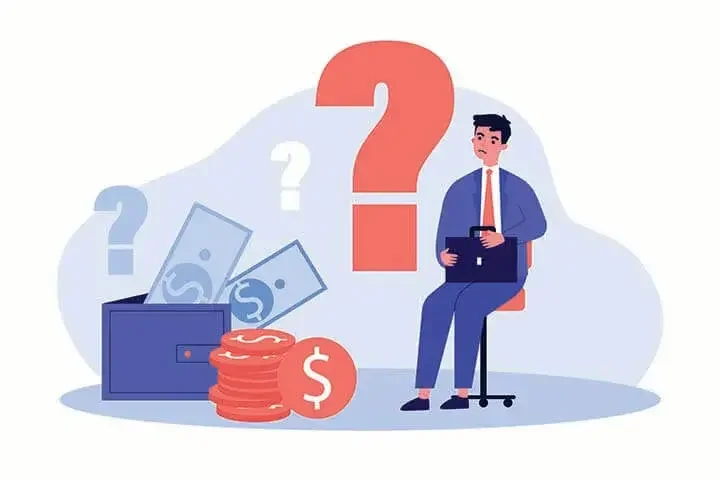Hiring an attorney can be stressful in itself, especially if you don't have a clear idea what bankruptcy attorneys do or what services you need. But with a little bit of knowledge, and these five questions, you can go into your bankruptcy consultation with confidence.

What bankruptcy attorneys do
Bankruptcies filed by ordinary people, rather than businesses, are handled by personal bankruptcy attorneys. Their work can be roughly divided into three categories:
- Chapter 7 bankruptcy, in which the filer's debts are wiped away after a period of four to six months
- Chapter 13 bankruptcy, in which the filer creates a payment plan and follows it for three to five years to repay debts
- Any related services, such as lawsuits against debt collectors or dealing with a foreclosure
To file for Chapter 7 bankruptcy, you must pass a "means test" that compares your income to your debts. If you can't pass it, Chapter 13 is usually your only option.
Regardless of which kind of bankruptcy you end up in, your estate—the name for your financial affairs—is handed over to a bankruptcy trustee.
As personal finance website, The Balance, notes, a bankruptcy trustee handles your finances, determining what you can afford to pay back and detecting fraud.
Importantly, this person does not work for you or for the court and should not have biases, because what a bankruptcy trustee does can have a profound effect on your case.
5 questions for finding the right bankruptcy attorney
Many bankruptcy attorneys offer free consultations, which are meetings at which you can discuss your case in detail and hear the attorney's recommendation.
When you go to this meeting, bring all of the paperwork that's relevant to your financial situation, as well as a list of your own questions. Here are some to consider.
1. What kind of experience do you have with cases like mine?
The National Association of Consumer Bankruptcy Attorneys puts experience at the top of its list of things to consider when hiring a bankruptcy attorney.
They suggest looking not at just a number of years in practice, but at how much of the lawyer's experience is in bankruptcy, especially the kind of bankruptcy you're filing.
2. Do I have an alternative to bankruptcy?
California bankruptcy attorney Cathy Moran, writing at Bankruptcy Soapbox, suggests asking this question because it requires the lawyer to explain why bankruptcy is the right choice in your situation.
This might be reassuring, but she says it also lets you judge whether the bankruptcy attorney sees you as a buyer or a person.
3. Can you handle my bankruptcy-related legal problems?
Bankruptcy often goes hand in hand with aggressive debt collection, and it can also be accompanied by further legal problems like owing child support.
If you have a legal problem like this, it's worth asking bankruptcy attorneys whether they can handle it or refer you to the right person.
As The Balance notes, being able to sue debt collectors is one advantage of having a bankruptcy attorney on your side, and "an experienced bankruptcy attorney will know whether the creditor's contact is innocent and unknowing, or a willful violation worth pursuing."
4. Who at your firm handles the work?
It's normal for a bankruptcy attorney's staff to handle the routine part of the paperwork, and perhaps some of the contacts with you. It's not normal for the attorney to hand off 100% of the case to the staff.
Personal finance company Bankrate says this is one sign that your law firm is a bankruptcy mill that "churns and burns cases with little regard to their client's specific needs."
The judge and bankruptcy trustee will rely on what's on your bankruptcy forms, so someone who understands the law needs to be involved.
5. What are your fees and what do they include?
You should feel free to ask about costs upfront, including when during the process payment is due.
In Chapter 13, for example, it's common for the attorney to require some of the payment at the beginning and then roll the rest of the payment into the client's debt for repayment over time.
In Chapter 7, a flat fee is most likely. Moran, at Bankruptcy Soapbox, suggests asking what's not included in the attorney's fee, because a low price might mean that certain parts of the case would cost extra.
Find the right match
As you interview bankruptcy attorneys, don't forget to consider whether your personalities are a good fit. Communication problems or personality clashes can make an emotionally difficult situation worse.
But if you pick the right attorney, you can set yourself up for success—in your bankruptcy, and in the financial recovery that you've made possible by taking this important step.

